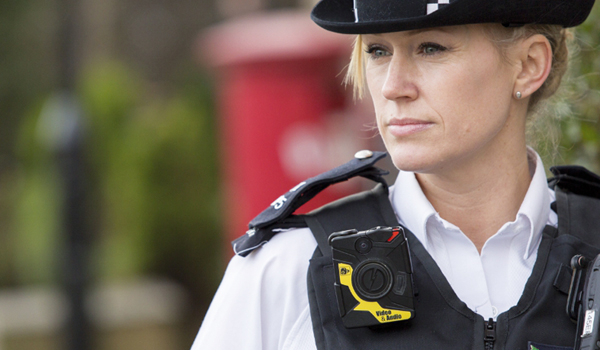Is BWV the panacea to all policing challenges?
It is estimated that by the end of this year 60,000 body-worn video (BWV) cameras will have been deployed by police forces across England and Wales. As a relatively new technology, the use and effectiveness of BWV has yet to be fully measured, but as Matthew Scott, police and crime commissioner for Kent, points out, benefits have already been identified which were never envisioned when the cameras were first rolled out.
It is estimated that by the end of this year 60,000 body-worn video (BWV) cameras will have been deployed by police forces across England and Wales. As a relatively new technology, the use and effectiveness of BWV has yet to be fully measured, but as Matthew Scott, police and crime commissioner for Kent, points out, benefits have already been identified which were never envisioned when the cameras were first rolled out. The benefits of the cameras that are often quoted include improving evidence quality, reducing assaults on officers, fewer frivolous complaints and moderating officer and public conduct, said Mr Scott. With an investment of this size, there will, rightly, be questions asked as to their efficacy and whether they are delivering against their objectives. After all, the £22.7 million spent so far represents the equivalent of over 450 police officers for one year. Big Brother Watch published a report earlier this year that said police forces were not collecting sufficient data to justify their benefit and that a number of trials had failed to demonstrate the advertised benefits. And Dr Justin Ready, a senior lecturer at Queenslands Griffith University, says some believe the true impact and effectiveness of the technology are still not fully understood, nor how it should be managed. Although BWV cameras are designed to provide objective evidence of an encounter, similar psychological processes to those involved in recalling details of critical incidents mean that the same footage can be interpreted to support different viewpoints. According to Dr Ready, this means that forces looking to deploy BWV must look beyond preconceptions about the technology. By doing so, they will gain a better understanding of the implications of its use and what policies will be required to deal with them. But writing for conservativehome.com, Mr Scott said he was of the firm opinion that there are huge benefits in using BWV, which, provided the evidence is collected, used, and destroyed within the prescribed rules, justifies their use. I can point to a number of practical changes that BWV has produced, he said. In Kent, they have been able to proceed with victimless prosecutions more easily, meaning that we can protect more vulnerable people from harm by using the evidence collected on video. Where there has been pressure on CCTV services run by local councils, valuable evidence collected by BWV has been used in some cases instead. There have been more early guilty pleas, because the Kent unit allows officers to show alleged offenders what has been caught on tape. While their benefit regarding police complaints has been challenged, Kent has seen many cases dealt with more quickly as a result of being able to corroborate stories, even if the impact on total volumes of complaints has not yet been measured. However, investment in BWV comes at a time when some are starting to question the benefit of the technology. Jamie Wilson, who is responsible for public safety marketing for NICE Systems throughout EMEA, says while, on one hand, the technology is being hailed as an effective evidence gathering tool, on the other its value is being called into question. The past decade has seen significant changes in the nature and scale of crimes. As a result, many UK police forces have started looking toward technology as a way to deliver effective services. Most recently, BWV has become part of many digital policing strategies and is increasingly being rolled out across the UK, he said. In theory, BWV should have a positive effect on the behaviour of both civilians and police officers. The desired outcome is that by equipping officers with video cameras, members of the public will be less likely to engage in inappropriate or confrontational behaviour. Equally, the cameras should also deter officers from responding unprofessionally or using excessive force when dealing with suspects. While there have been a number of studies aimed at evaluating the effectiveness of the technolo


